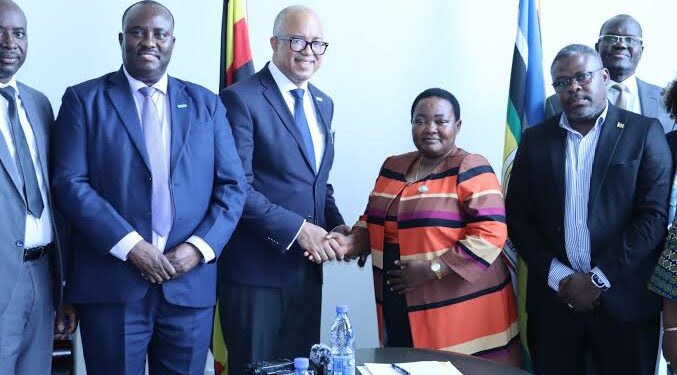As Uganda battles an ongoing outbreak of mpox, health officials are focusing on innovative and inclusive approaches to ensure the most marginalized communities, particularly sex workers and their networks, receive the care they need.
These key populations (KPs) are disproportionately affected by the disease, often facing barriers such as stigma, discrimination, and limited access to healthcare. During public health emergencies like the current mpox outbreak, these challenges are amplified, putting vulnerable groups at even greater risk.
In response, the World Health Organization (WHO) has teamed up with the Most At Risk Populations Initiative (MARPI) Clinic Mulago, a healthcare facility with a proven track record in serving KPs, to develop a comprehensive surveillance and response strategy tailored to the needs of these groups.
The first cases of mpox began appearing in Uganda’s key hotspots, prompting health experts to adopt a targeted approach to reach high-risk populations. For individuals like Tracy, a sex worker in Kawempe, the arrival of unusual skin lesions led to confusion and fear. “I was scared,” she recalls.
“I didn’t know if it was something serious, and I was afraid of being stigmatized. But I trusted the MARPI team. They examined me with care and acted quickly. The support I received made me feel safe and cared for, like I wasn’t alone.”
For many sex workers and other KPs, stigma and a deep-seated distrust of healthcare systems often prevent them from seeking timely medical care. The fear of judgment or rejection, coupled with their mobile lifestyles and societal discrimination, complicates access to essential healthcare services, making the task of identifying and treating cases particularly challenging.
“Reaching these populations is difficult,” says Dr. Jerome Ntege, a WHO anthropologist involved in the response. “Without collaboration, many cases would go undetected.”
WHO’s collaboration with MARPI Clinic has proven to be instrumental in overcoming these obstacles. With MARPI’s long-standing relationship with KPs, WHO has implemented an innovative initiative to strengthen mpox surveillance and improve community engagement. This strategy has focused on education, capacity building, and peer support, recognizing that KPs are often best served by their own communities.
Key components of the initiative included training 40 MARPI staff members in mpox surveillance, diagnosis, and patient care; equipping 40 civil society organization managers to mobilize resources and engage their networks; and educating 150 community peers, including sex workers, on how to identify symptoms, report cases, and support each other during the outbreak.
The impact of this approach has been immediate. Community peers, such as Kyomugisha Ruth, have become vital sources of information and support within their networks.
“During the training, we learned how to spot symptoms early and respond immediately. This knowledge has saved lives,” Ruth explains. Through tools like WhatsApp posters, Ruth and others have been able to spread awareness and encourage timely care for individuals who may otherwise avoid seeking help.
Ruth’s efforts have yielded concrete results. “I shared a poster about mpox symptoms on my WhatsApp, and someone in my community reached out to me. I connected them with MARPI, and they got help. It feels amazing to know I played a part in saving someone’s life,” she adds.
Another testimony comes from a bar attendant in Rubaga who was initially fearful of seeking care. “I thought I was alone in this, but MARPI found me, took care of me, and ensured I got treatment. The doctors and peers treated me like a person, not just a case. That made all the difference,” they said.
The proactive engagement of MARPI remains crucial in identifying and responding to mpox cases, particularly among high-risk populations such as individuals living with HIV and workers in informal sectors like bars. By leveraging peer networks and building trust, MARPI and WHO have been able to bridge the gap between these vulnerable groups and essential healthcare services. This peer-based approach has created a sense of security for KPs who previously avoided healthcare due to fear of discrimination or judgment.
“The collaboration with MARPI Clinic has demonstrated that working together, we can reach even the most marginalized groups and make a real impact on public health,” says Dr. Joseph Wamala, WHO Incident Manager for the mpox response.
As the collaboration continues over the coming months, it serves as a model for how sustainable and inclusive public health responses can be developed to address the needs of marginalized communities. Through education, trust-building, and community-led interventions, Uganda is paving the way for more effective, equitable healthcare delivery during public health crises.
Do you have a story in your community or an opinion to share with us: Email us at editorial@watchdoguganda.com









